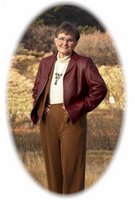AD: Literary Fiction, Popular Fiction, Great Fiction

My friend Angie Hunt recently asked a bunch of novelists what we think of these definitions by Bret Lott in his forward to The Best Christian Short Stories, (Westbow, 2006, p. viii):
“…literary fiction is fiction that examines the character of the people involved in the story, and…popular fiction is driven by plot. Whereas popular fiction…is meant primarily as a means of escape, one way or another, from this present life, a kind of book equivalent of comfort food, literary fiction confronts us with who we are, and makes us look deeply at the human condition.”
While I love short stories and believe we need more of them published, and I wish Mr. Lott and all the contributors to this book great success, I do have doubts about the premise that literary fiction is driven by characters and popular fiction is driven by plot. This implies the possibility of characters and plots existing at the far ends of a sliding scale describing the percentage mixture of the two, and the further a novel moves toward one end or the other, the more purely literary or popular it becomes. But in the modern novel, where “show, don’t tell” is fundamental to the art form, plot and character are not polar opposites; they are synergistic. Decent plots are impossible without interesting characters in action, and decent characters are impossible without something interesting for them to do (read: conflict). It is difficult then to imagine an accurate scale with “literary fiction/character examination” at one end and “popular fiction/plot driven” way over on the other, unless we add “mediocre novel” to our labels at both ends and a third form called “great fiction” somewhere in the center.
This brings me to theme, which is not a word Mr. Lott used in his definitions. Webster’s defines theme as “a subject or topic of discourse or of artistic representation.” Since “subject or topic” could leave one thinking themes are simply what the story is about, I would add that theme is what a story explores behind the scenes, not out in the open. Moby Dick is about hunting for a whale, but the whale hunt is not the theme. Because of Mr. Lott’s comment that literary fiction “makes us look deeply at the human condition” I’m afraid some might view our sliding scale as a measurement of theme, with “none” at the popular end and (forgive the pun) “lots” on the literary end where we “look deeply.” If so, again I have my doubts. Les Miserable was the popular fiction of its day, as was David Copperfield—they certainly fit Mr. Lott’s definition, given their hard driving plots—yet these popular novels are nothing if not thematically rich.
Mr. Lott is correct to write that a purely plot driven novel is “the book equivalent of comfort food,” but I would add that the philosophical or psychological ramblings of a purely character driven novel are the book equivalent of a lecture by a stranger on an airplane who will not let you sleep. If interesting characters are necessary to drive interesting plots forward—and they are—it’s also true an interesting plot can tell us things about the characters that they themselves cannot express, communicating on levels behind the scenes, not out in the open, which is where most of the really interesting stuff concerning “who we are” is found. Remember the whale.
Since great fiction is not found at the polar extremes of plot or characterization, where is the best combination of these things? How can we recognize the proper setting on our scale? Sadly, I do not know. But I do know the bookstore’s fiction department has more of a say in this than the university’s English department. Dickens' and Hugo's “popular” novels are still alive today because readers will not let them die. Readers will not let them die because they contain the illusive proper combination of character and plot that drives a theme so deep within it cannot be forgotten or ignored. There is no measuring or defining this perfect combination but readers know it when they read it.
If we must persist in labeling each other’s work, here are better definitions than Mr. Lott's, in my opinion: "Popular fiction" is a book that sells mainly to the so-called average person (be it poorly or well). "Literary fiction" is a book that sells mainly to the so-called intelligentsia (be it poorly or well). “Great fiction” is any novel still selling well a century or two after the author is dead.
If you’re thinking this final definition means novelists cannot know which label applies to their own work in their own lifetime, you are right. How can it be otherwise when the things that make the difference are indeed illusive, and to some degree, eternal? Still, novelists can use these definitions to their advantage. When we aim for the literary heights, when egos threaten to intrude upon the craft and we begin to think of laurels round our brows, all we need to do is remember sales today are no indicator of sales in generations to come, when many hugely popular novels and hallowed literary novels will be moldering in trash dumps, and others by unsuccessful authors will be resurrected to live on. Again, remember the whale. If, like Melville, we'll never know one way or the other, we might as well relax, do our best to tell interesting stories about interesting people, and trust the readers to sort it out in a hundred years or so.
Athol Dickson, author of:
River Rising
http://www.bethanyhouse.com/riverrisingatholdickson/index.htm
The Gospel According to Moses
http://www.amazon.com/exec/obidos/isbn%3D1587430487/bakerbookhouseA/103-7850295-0575863
















